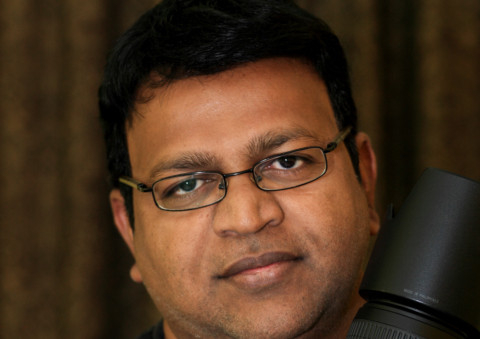
16:34 Gulf News: Current primary schooling does not focus on the cognitive ability of a child.
16:36 John Paravalos: I agree to a certain degree. Schools seem to just offer the bare minimum and do not challenge children to their full potential. This is based on conversations I have had with other parents as my child is not old enough to attend school, yet.
16:36 Rexy Elizabeth Vincent: Well, you cannot say yes or no as it depends on the education system, the way that the primary school interprets ideas of primary education and also the teachers. According to the Montessori education system, children learn through playing and making use of toys in order to learn the alphabet and numbers. Some curricula make children do such projects and application based learning in the form of homework. At school, children are taught to write, complete worksheets and learning drills, which may or may not be boring or nice, depending on the teacher.
16:44 Rexy Elizabeth Vincent: By the passage of time, education has also changed. My younger daughter is seven. When she was in KG 1, she had a teacher who had a more theoretical approach to education, and this gave her fewer opportunities to explore Nature. However, the following year she got a teacher who was competitive and gave students a chance to learn about the world around them in a broader aspect. In grade one and two, my daughter’s talent was again restricted to textbooks and spending hours in front of a computer as a part of the e-learning curriculum, making her a couch potato. So, development of cognitive abilities depends on the teacher as well.
16:44 Lal Nallath: I agree as I believe that the current educational system does not really have any in-depth research background. However, recently my wife’s school introduced an oral based education system, which she says turned out to be very effective.
16:47 Gulf News: We are making children dumb by presuming that they are.
16:50 Lal Nallath: I disagree. I gave my child decision-making authority at a very early age, such as choosing the colour of the clothes that she wants to wear and the food that she wants to eat for breakfast. However, in terms of major decisions such as what school to go to and what language to study, I made the decision.
16:51 John Paravalos: No, parents should never assume that children are dumb. They have the ability to learn far more than we give them credit for. I encourage my daughter to use puzzles, draw, and count. I teach her a lot by acting out as if they are games. She can count to ten and knows all her colours, and at the age of two and a half, she understands both English and Greek. Parents who just leave their children in a chair and do no interact with them are making a mistake by limiting their child’s development.
16:52 Rexy Elizabeth Vincent: Baby talk is only useful in in the pre-school stages. When we continue to do so in later stages, children find it boring. With the passing of age, children adapt to the vast availability of information and learning resources around them. My seven-year-old daughter is smarter than my 15-year-old daughter used to be when she was seven. We restrict boundaries of learning to a basic level of alphabets and numbers, which many children learn by the age of three. Thus I agree to the statement.
16:54 Lal Nallath: My children surprise me with the pace they solve issues and the conversations they have. For example, my elder daughter was exceptional in remembering logos of any location or organisation we went to and would remind me to go there by describing the logo at a very early age and this ability amazed me.
16:54 Rexy Elizabeth Vincent: Earlier, computers used to be a luxury for children and today they are a basic necessity. It is wrong on the parent’s behalf if they don’t fulfil the technological needs of children.
16:55 Gulf News: Home-schooling isn’t a viable alternative as it robs children of everyday social experiences.
16:58 Lal Nallath: I agree as interaction with other children and the school experience does a lot for the development of a child.
16:58 Rexy Elizabeth Vincent: I agree, as home-schooling may give personal attention to a child. However, as the child grows he or she will become withdrawn and less outgoing. The child will find difficulty in interacting with others of the same age group. Thus, the child will not develop a personality in home schooling as he or she will lack childhood experience with other children. This can also be found in one of the books written by Isaac Asimov [American author], who compared the school experience of a modern grandfather with that of a modern grandchild.
16:59 Lal Nallath: Home-schooling will create an absolute loner who will lack the ability to compete.
17:03 Gulf News: A high exposure to sensory stimuli might be beneficial.
17:06 Lal Nallath: I agree. A fun experience based on interactive education will enrich the physical and mental ability of a child, and the more fun it is, the easier it will be for the child to accept it.
17:06 Rexy Elizabeth Vincent: I completely agree with the statement. When children relate and observe facts with their five sense organs, the sixth sense organ, that is the brain is rejuvenated every time to accept more knowledge. Facts and figures are drilled into children’s brain, which rarely creates a gap to understand. However, intelligent children are able to grasp them quickly. To allow all children to develop at a normal pace, practical learning, with a high exposure to sensory stimuli is very much beneficial.
— Compiled by Donia Jenabzadeh, trainee with Gulf News














